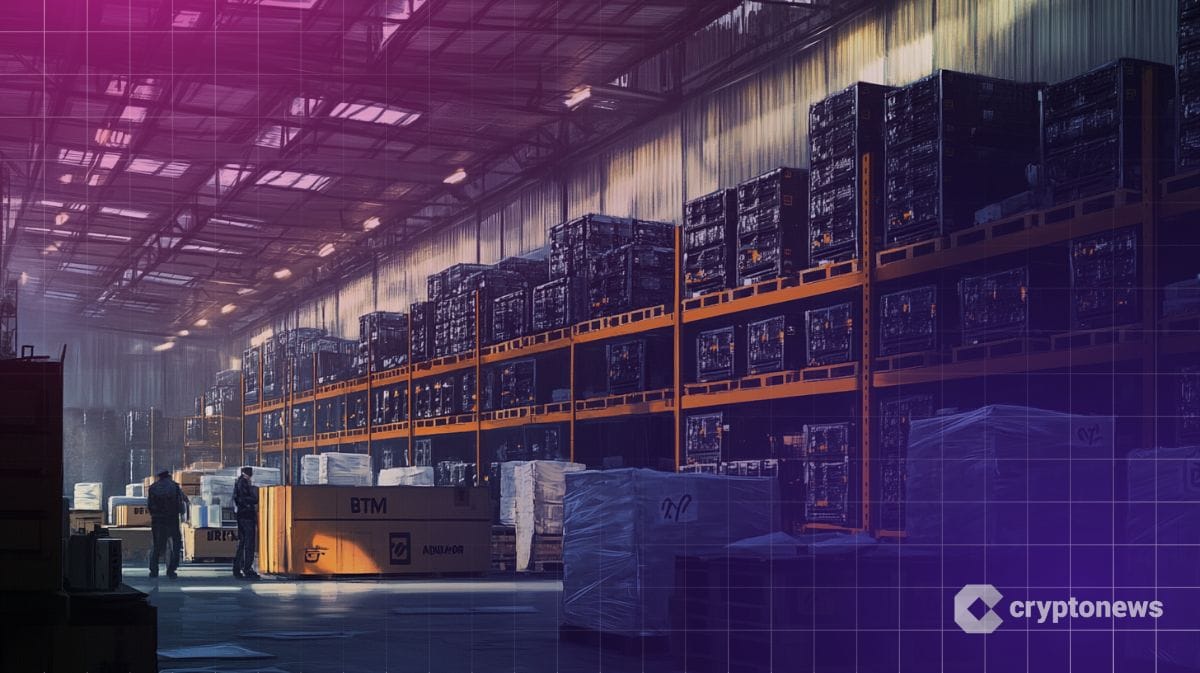Last updated:
 Why Trust Cryptonews
Why Trust Cryptonews

On February 13, a Bloomberg report revealed that U.S. Customs and Border Protection has intensified its inspection of Bitmain mining rigs.
The added scrutiny has left some shipments stranded, prolonging wait times for hardware needed to keep Bitcoin mining facilities running smoothly.
Bitmain Mining Equipment Shipments Face Extended Customs Checks
Industry sources reported that shipments of Bitmain miners have been held up for extended checks, with authorities requesting additional documentation regarding their origin.
Several U.S.-based mining firms have confirmed disruptions to their operations. New York-based Bit Digital experienced a delay in receiving 700 mining rigs, while a separate 20-megawatt mining site in Oklahoma has had 2,000 rigs held at Customs.
“Which is not too much compared to the whole operation,” said Bit Digital CEO Sam Tabar. “We are one of the lucky ones.”
The inspections reportedly target shipments labeled as Bitmain products, with some industry participants noting that scrutiny intensified in the past month.
The increased checks have raised concerns among U.S. mining firms, as they rely on timely equipment deliveries to maintain competitiveness.
The prolonged inspections have also led to additional costs for some companies.
Bitcoin Mining Imports Hit by Tariffs, Blacklists
The disruptions come as the U.S. government continues to restrict Chinese tech firms.
In January, the Commerce Department blacklisted Bitmain’s AI affiliate, Xiamen Sophgo Technologies Ltd., citing national security concerns.
“U.S. Customs has started randomly inspecting almost all of the airlifted Bitcoin mining machines since about three months ago,” said China Digital Mining Association founder Nuo Xu. “While asking the brokers to show certificate of origin.”
While the blacklist applies to AI hardware, it has drawn further attention to companies linked to China’s semiconductor industry.
Industry executives warn that prolonged delays and additional tariffs could make importing mining equipment less viable.
Some mining firms are exploring alternative hardware suppliers, but Bitmain remains the dominant manufacturer, with no immediate replacement in the market.
President Trump has announced on social media that he will reveal new reciprocal tariffs today to match those imposed on imported American goods.
The escalating trade war and AI competition could further undermine the mining industry.
These events highlight an important crossroads for the U.S. Bitcoin mining sector.
The success of domestic miners depends heavily on stable supply chains, which could be disrupted if trade barriers persist.
Investors, policymakers, and industry players are closely monitoring the situation for possible solutions.
Although the future is unclear, resourceful companies may find ways to adapt and preserve American Bitcoin mining operations in the face of shifting policies.
This interplay of policy, technology, and global commerce reveals the complexities that define modern blockchain enterprises.















